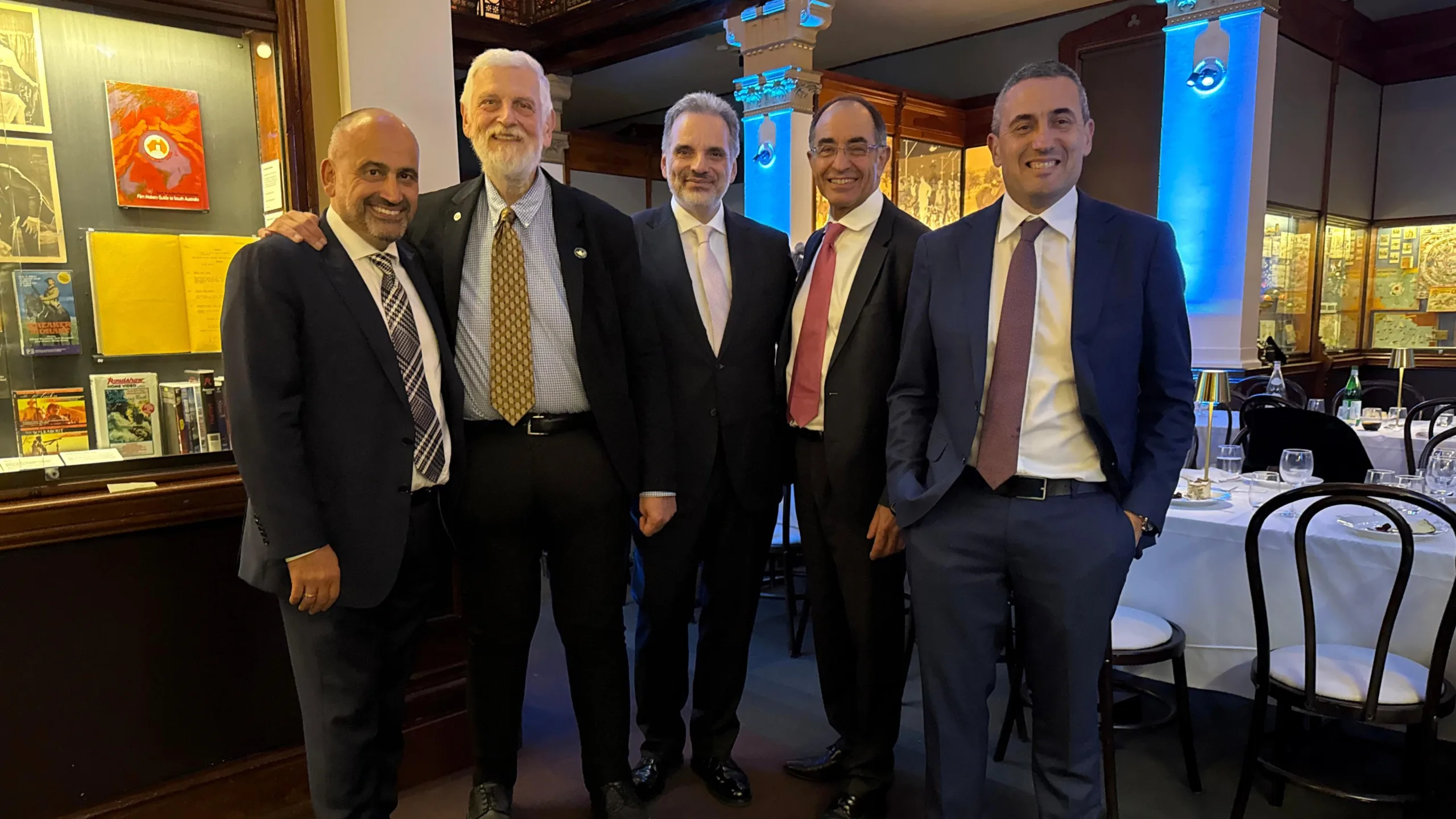On 20 October 2025, the Mortlock Chamber of the State Library of South Australia was transformed into a scene of elegant celebration as South Australia’s Greek community gathered to honour the visit of Ioannis Loverdos, Greece’s Deputy Minister of Foreign Affairs for Greeks Abroad.
The event was co-hosted by Tom Koutsantonis MP, Treasurer of SA, and the Hellenic Studies Foundation, welcoming an audience that reflected the depth and breadth of Hellenic presence in the state.
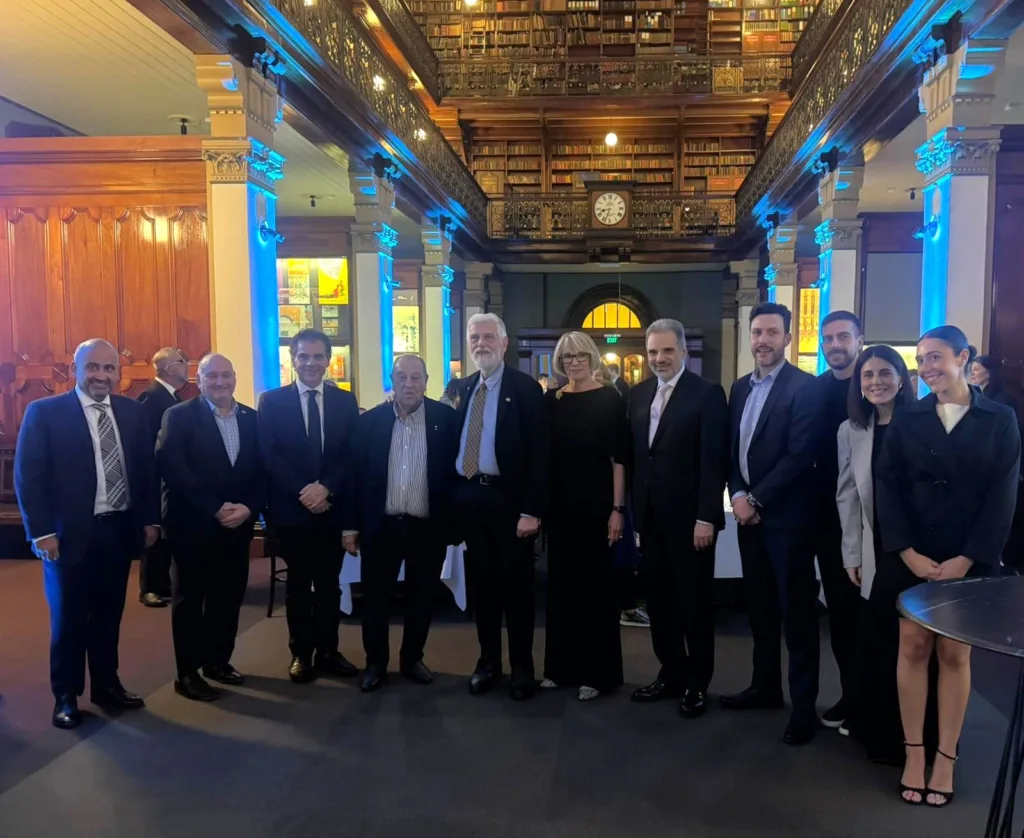
Guests included Stavros Venizelos, Ambassador of Greece to Australia, His Grace Bishop Silouan of Adelaide, Consul General of Greece in Adelaide Dr Alexandra Theodoropoulou, Minister Andrea Michaels MP, Frank Pangallo MLC representing the Leader of the Opposition, and Connie Bonaros MLC.
Also in attendance were Lord Mayor of Adelaide Jane Lomax-Smith, Mayor Michael Coxen, Councillor Mary Couros, and a cross-section of industry and community leaders from South Australia’s vibrant Greek community.
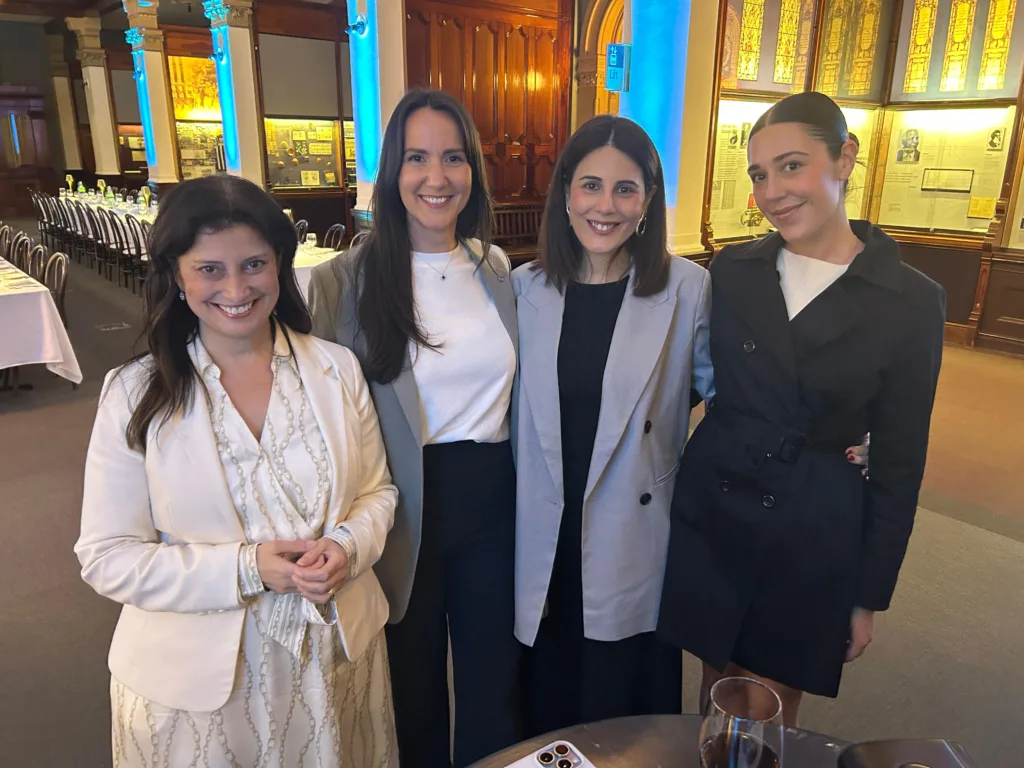
A celebration of connection and identity
In his opening remarks, Treasurer Koutsantonis spoke with characteristic passion about the enduring bond between Greece and its diaspora.
“The Deputy Minister for Foreign Affairs has a special mandate to look after Greeks abroad. Now that term [Greeks abroad] means a lot to all of us, who are so far away from our parents and grandparents’ home. We’ve made our homes and our fortunes in our lives, and our families, on the other side of the world,” Koutsantonis said.
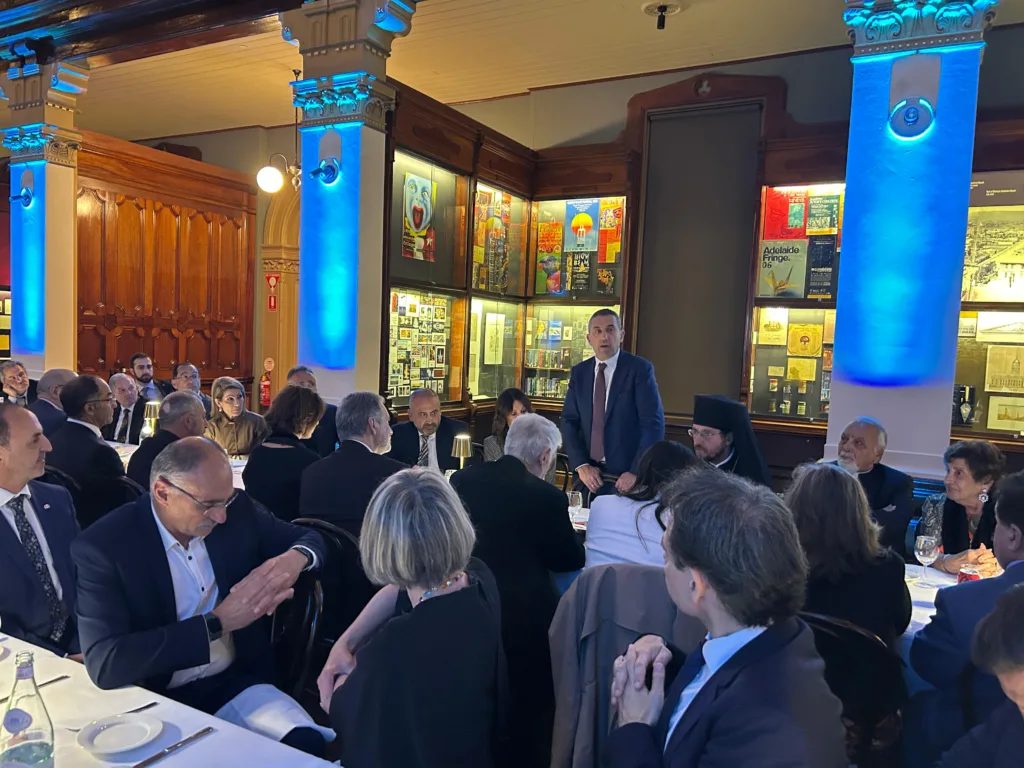
He went on to describe the significance of the visit for SA’s Hellenic community, noting that the presence of the Deputy Minister here in the state is not only appreciated, but meaningful, and “represents a bridge between the Hellenic Republic and the Hellenic diaspora; between our homeland and our heartland; [and] between roots and branches that flourish across oceans and generations.”
Koutsantonis emphasised the call to live Hellenism actively and transmit it to future generations.
“Our different weaving of language, passion, community life, and faith is creating a resilient cultural fabric that continues through the generations,” he said.
“It’s not a matter of simply celebrating our culture. Anyone can do that. It’s an act of stewardship. It’s a matter of ensuring the stories and values and the spirit of Hellenism aren’t only preserved but renewed – and one of the most important vessels for that is language.”
He described language as the vessel of Greek history, philosophy, and values – the means by which legacy becomes inheritance – concluding that “Hellenism is alive and well in South Australia.”
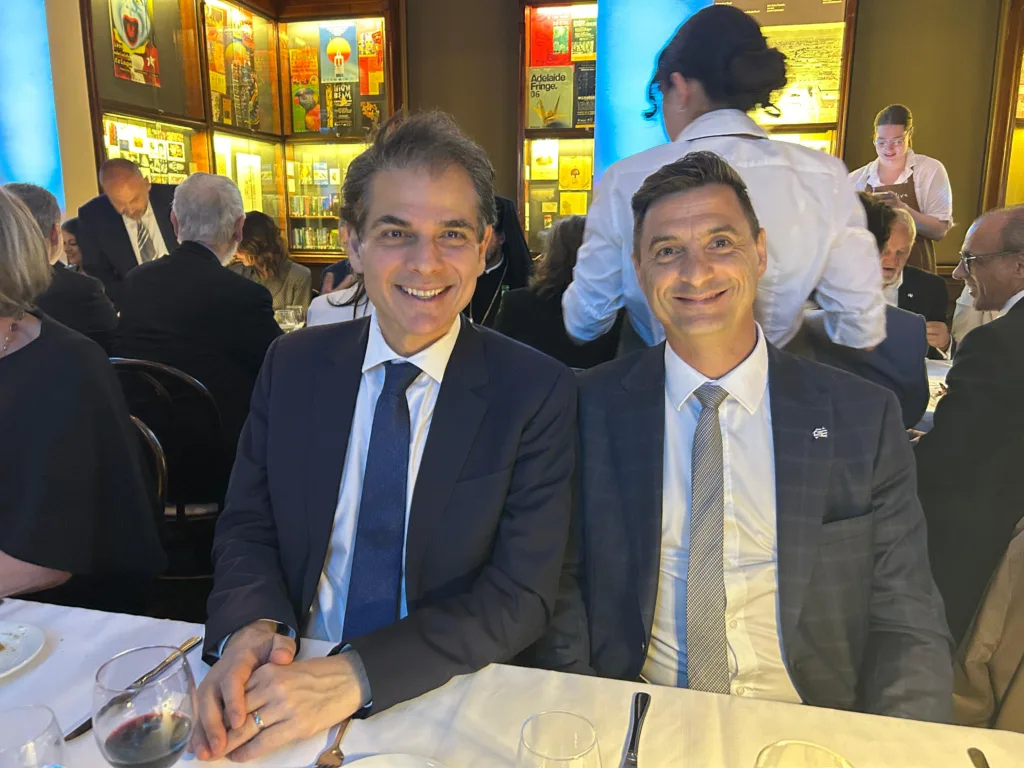
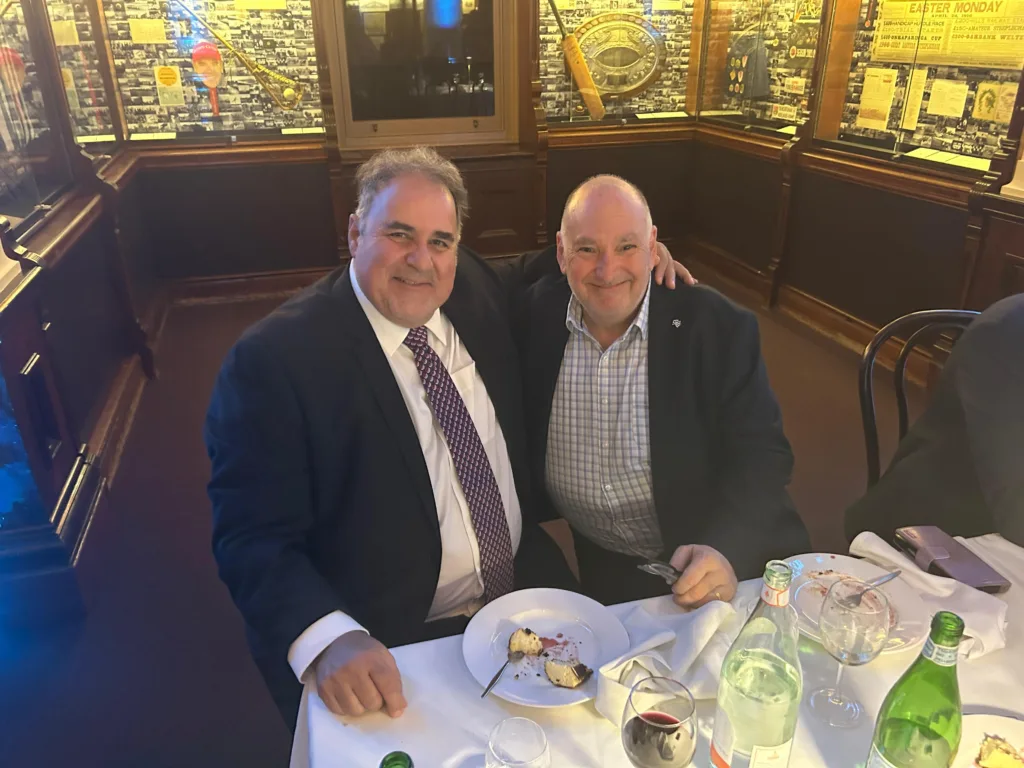
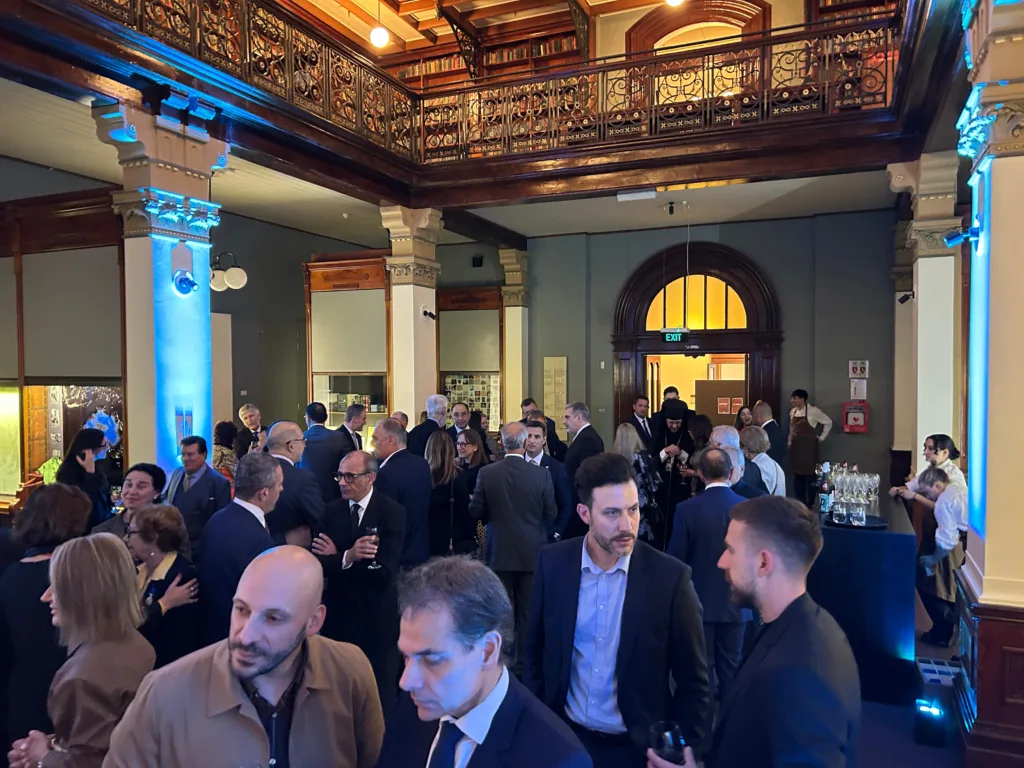
Bridging homeland and diaspora
Deputy Minister Loverdos expressed his admiration for Adelaide’s cultural energy and dynamism, and the passion of its Greek community.
Reflecting on the shared history between Greece and Australia – forged in the camaraderie of the World Wars – he spoke of a bond that transcends geography.
“Here amongst you, I feel like I’m home… Greece and Australia are two countries who are very far from each other [geographically], but we are very close friends and allies…. [But] what brings together Australia and Greece, is the Greek Australian community. You are covering the [distance]… And for me, Greek Australians are Greek,” Loverdos said.
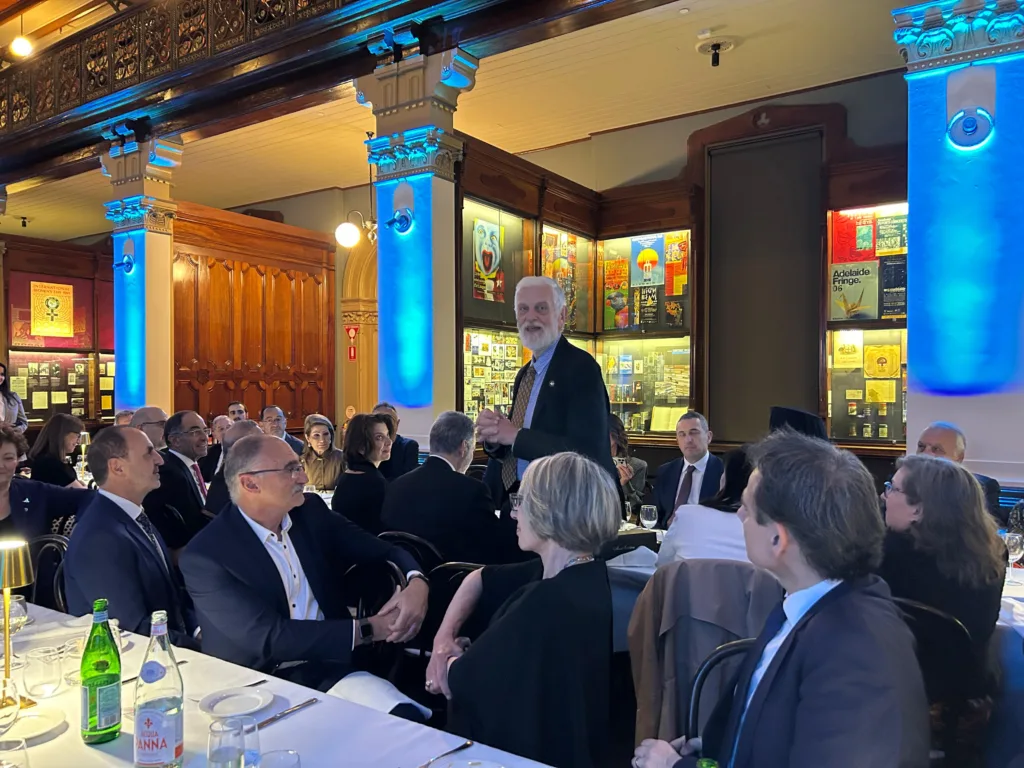
He expanded on this theme of unity, declaring that Hellenism is a global phenomenon.
“Hellenism is not only for the Greeks who reside in Greece. There are Greeks everywhere, in America, in Canada, in Germany, in Australia. We are all Greeks. Why are we all Greeks? Because we share the same values and the same principles, not only the origin… because we share logic, philosophy, critical thinking, science, democracy, freedom – all these were invented by our forefathers… The Greek civilisation is ecumenical… belonging to the whole of the world,” he said.
The Deputy Minister also highlighted the Greek language as one of the strongest and oldest in existence: “It’s a language that has existed for more than 35 centuries – from the times of Homer until now. It’s the language the Gospels were written in, the language of Plato and Aristotle, and the language of Alexander the Great.”
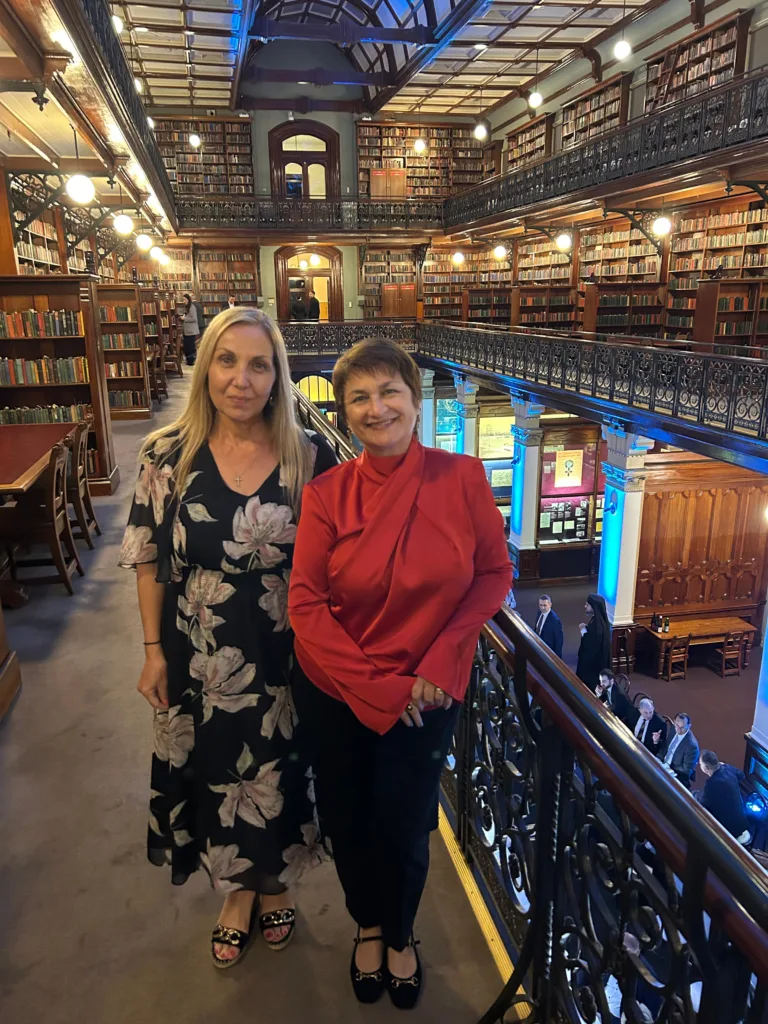
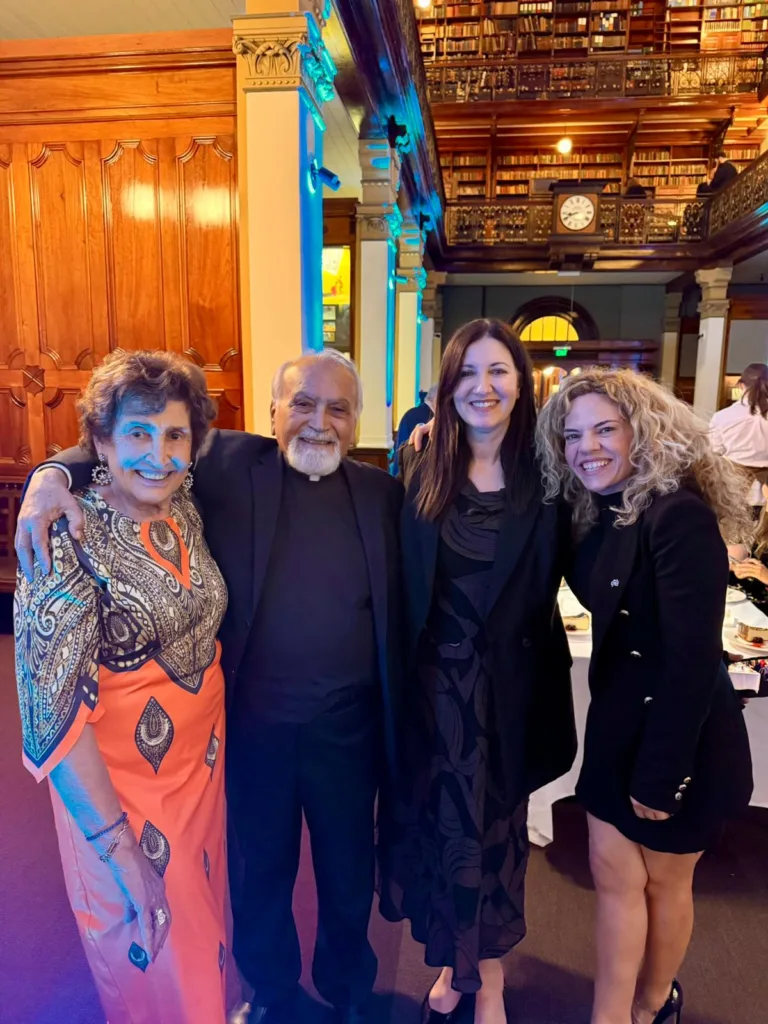
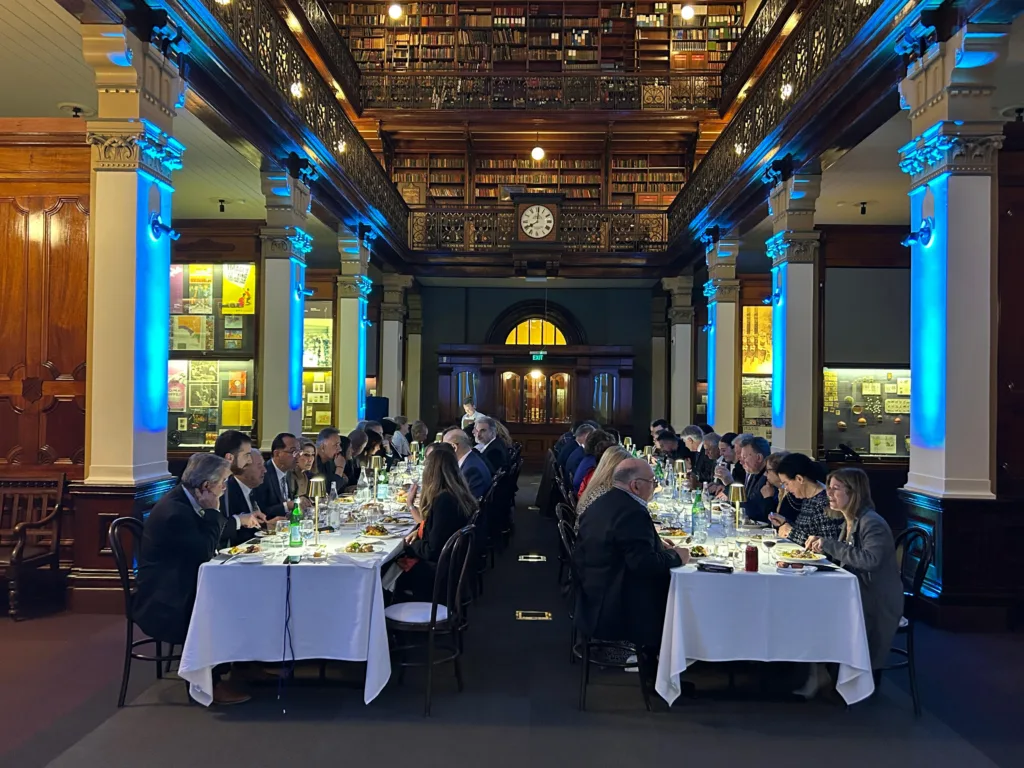
Turning to faith, Loverdos underscored the interconnection between Orthodoxy and national identity.
“It is not only a religion for us. You can be whatever religion you want. But for Greeks, it’s not an honorary religion. It is a part of our national identity. If we were not Orthodox, we would have become Muslims and would have become Turks during the Ottoman years. So, for us, these two important things – the language and our religion – are our national identity,” he said.
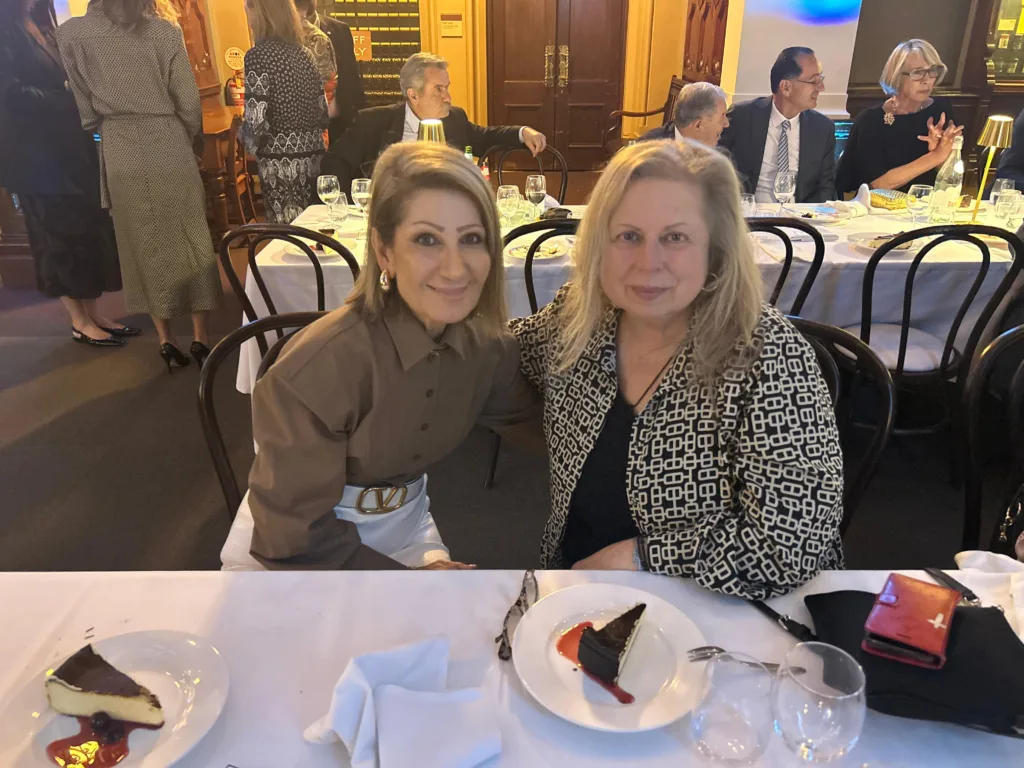
Loverdos concluded with a passionate call for unity and pride, the pride of being Greek and that “in Greece, we bow to no one, only to our flag, and to our Lord Jesus Christ. To nobody else, we do not bow.”
The dinner offered more than a celebration, but was a reaffirmation of the living bond between Greece and its diaspora and that the light of Hellenism continues to shine brightly in South Australia.
*All photos copyright The Greek Herald / Peter Tantalos
